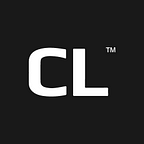What is Tokenization?
Tokenization is not just a popular buzzword. It represents a transformative force, set to reshape how we perceive and interact with assets of all kinds.
Tokenization is the process of converting rights to an asset into a digital token on a blockchain. These tokens are a representation of the ownership or value of the asset, allowing for increased liquidity, accessibility, and efficiency in managing and transferring assets.
The concept of tokenization isn’t entirely new, and its roots go back to traditional methods of representing ownership in a digital format. Stock certificates issued by companies can be considered a form of tokenization as they symbolize ownership in the company, but on a piece of paper instead.
Tokenization brings these processes into the digital age, leveraging blockchain technology to offer benefits such as transparency, security and reduced costs. This in turn allows for a range of assets to be tokenized, such as real estate and artwork.
The Mechanics of Tokenization
At its core, tokenization involves representing ownership in a digital format. This representation is done using blockchain technology, which provides the infrastructure and security necessary for such a transformation.
Here’s a quick breakdown of how the tokenization process works:
- Asset Selection: The owner of an asset, such as a piece of real estate or a share in a company, decides to tokenize it.
- Blockchain Integration: A blockchain is chosen for the tokenization process. Popular choices include Ethereum and Stellar due to their robust smart contract capabilities.
- Smart Contracts: Smart contracts are developed to define the rules and terms of the token. These may include things like dividend payments, voting rights, or redemption options.
- Token Creation: The asset is represented by tokens. The number of tokens created is often proportional to the value or ownership of the asset. Each token corresponds to a fraction of the asset.
- Transferability: These tokens can now be bought, sold, and transferred with ease. The blockchain ensures that all transactions are recorded and secure.
Advantages of Tokenization
The rise of tokenization is not accidental. It offers several advantages that make it an appealing option for asset owners and investors:
- Liquidity: Tokenized assets are more liquid. They can be bought and sold in smaller fractions, making it easier for a broader range of investors to access them.
- Accessibility: With a digital token, you can hold and trade your assets from anywhere in the world, 24/7, as long as you have an internet connection. This levels the playing field for global participation in various markets.
- Reduced Costs: Tokenization can eliminate many of the middlemen and administrative costs associated with traditional assets. This results in potentially lower fees for investors and asset owners.
- Transparency: The blockchain’s inherent transparency ensures that the ownership and transfer of tokens are securely recorded and verifiable. This reduces the risk of fraud and disputes.
- Fractional Ownership: Tokenization allows assets to be divided into smaller fractions. This means that you can own a portion of a high-value asset, such as a luxury property or a valuable artwork.
How Industries Use Tokenization
Believe it or not, tokenization is already making inroads in various industries. These include:
- Real Estate: Tokenization enables fractional ownership of properties. It opens up real estate investment to a broader demographic, making it more inclusive.
- Art and Collectibles: Valuable art pieces and collectables can be tokenized, allowing collectors to share ownership or trade pieces of art more easily.
- Financial Markets: Stocks, bonds, and commodities can be tokenized, simplifying the trading process and expanding access to global markets.
- Venture Capital: Startups can raise capital by issuing tokens. This can democratise the investment process and provide more opportunities for investors.
The Road Ahead
As blockchain technology continues to mature and regulatory frameworks evolve, tokenization will become more prevalent. It has the potential to revolutionise how we buy, sell, and trade assets. While challenges remain, particularly in terms of regulation and acceptance, the future is undeniably digital.
The rise of tokenization brings exciting opportunities for asset owners, investors, and the financial industry at large. It represents a shift toward a more accessible, liquid, and efficient financial world, where assets are not restricted by borders, paperwork, or traditional intermediaries.
With tokenization, the future of asset ownership and investment is not just digital; it’s dynamic, diversified, and decentralised.
